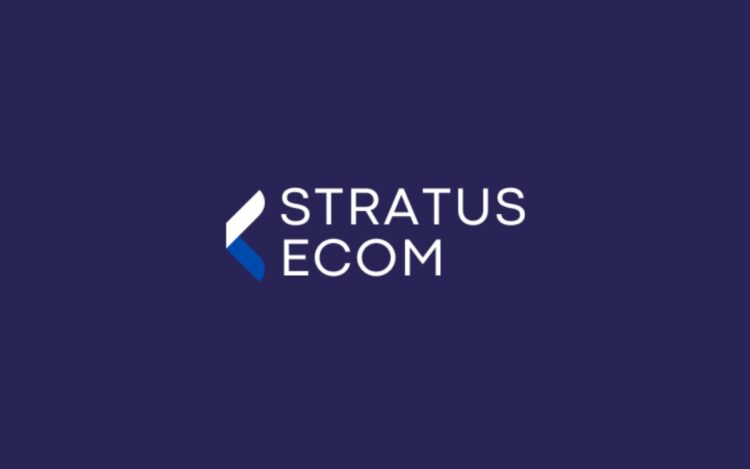The e-commerce market hit $6.9 trillion last year. By 2030, it’ll crack $10 trillion. Those numbers aren’t abstract—they represent real money flowing through platforms like Amazon, Walmart, and TikTok Shop every single day. What most people don’t realize is that a huge chunk of those sales comes from individual sellers, not massive corporations.
That’s where Stratus Ecom comes in. The company manages online stores for professionals who want to tap into e-commerce profits without actually running an e-commerce business. Their pitch is refreshingly straightforward: you put up the capital, they build and run the store, and you split the profits.
Currently managing over 100 stores across Amazon, Walmart Marketplace, TikTok Shop, Etsy, and eBay, Stratus employs a team of 65-plus people who handle everything from product selection to customer service. The time commitment required from clients? About 30 to 60 minutes per month reviewing profit reports.
“We don’t just give you a cookie-cutter store with cheap saturated products from 2017,” the company states. Instead, they select different products for each client based on current market data, creating customized stores designed to outperform generic competition. This personalized approach addresses a common concern in the e-commerce automation space, where many services offer identical setups to every client.
Here’s an interesting wrinkle that explains their business model: if Stratus can build profitable stores so effectively, why don’t they just keep opening stores for themselves? Turns out, major marketplaces have strict limits on how many stores any single entity can own. Amazon, Walmart, and others cap seller accounts to prevent market manipulation. So Stratus partners with individuals who become the official store owners while the company handles operations. It’s a workaround that benefits both parties—Stratus scales its operations, and clients get access to proven e-commerce systems without doing the work.
The financial structure offers three partnership tiers: a 50/50 profit split for those wanting lower initial investment, a 60/40 split where clients keep the larger share, and a 70/30 split for those ready to invest more upfront. Many clients report earning $2,000 to $5,000 or more in monthly profit after the ramp-up period, though the company emphasizes results vary based on capital, product selection, and market conditions.
What sets Stratus apart are two specific guarantees. First, if a store doesn’t make any sales within 30 days of going live, they refund the setup fee. Second, if clients haven’t recouped their initial investment after three years, Stratus will buy back the store for the difference. These protections aren’t typical in the e-commerce management space.
The process starts with Stratus getting clients approved to sell on various platforms, handling LLC formation, EIN registration, and banking relationships—the administrative headaches that stop many would-be sellers before they start. Once that groundwork is done, their product research team uses AI tools to identify profitable items, while their operations team manages listings, inventory, advertising, and order fulfillment. Clients work with a dedicated success manager who provides bi-weekly updates and monthly profit reports through Slack.
Running stores across multiple platforms also spreads risk. If one marketplace changes its policies or experiences a downturn, the other platforms can pick up the slack. It’s diversification within the e-commerce space itself, something that single-platform sellers can’t achieve.
The company started five years ago among friends and family before expanding into a multi-partner operation generating over $1 million in client revenue. Their specialized teams focus on different aspects of online retail—product sourcing, marketplace compliance, logistics, and digital marketing. They’re also building their presence on Instagram for those who want to follow along.
Their client base reveals who’s drawn to this model. Some use these stores to supplement retirement savings, others see it as an alternative to traditional investments, and a few have reportedly replaced their primary income entirely, though that’s not typical. The model particularly appeals to professionals with demanding careers—doctors, lawyers, corporate executives—people who have capital but can’t spend weekends sourcing products or optimizing Amazon listings.
Of course, Stratus is upfront that this isn’t guaranteed money. E-commerce investments carry risk, just like stocks or real estate. Market conditions change, competition is fierce, and platforms constantly update their rules. The company explicitly states they don’t offer “get-rich-quick” programs, positioning themselves instead as a legitimate business opportunity requiring real investment and patience.
For those interested, Stratus offers free consultations where potential clients can review actual store data and profit projections. Whether their model makes sense depends on individual financial goals, risk tolerance, and belief in the continued growth of online retail. But with e-commerce showing no signs of slowing down, companies like Stratus are betting that busy professionals will increasingly look for ways to profit from this massive market without having to run the business themselves. Those ready to explore this opportunity can reach Stratus Ecom at stratusecom.com or by calling (866) 50-STRAT.




































